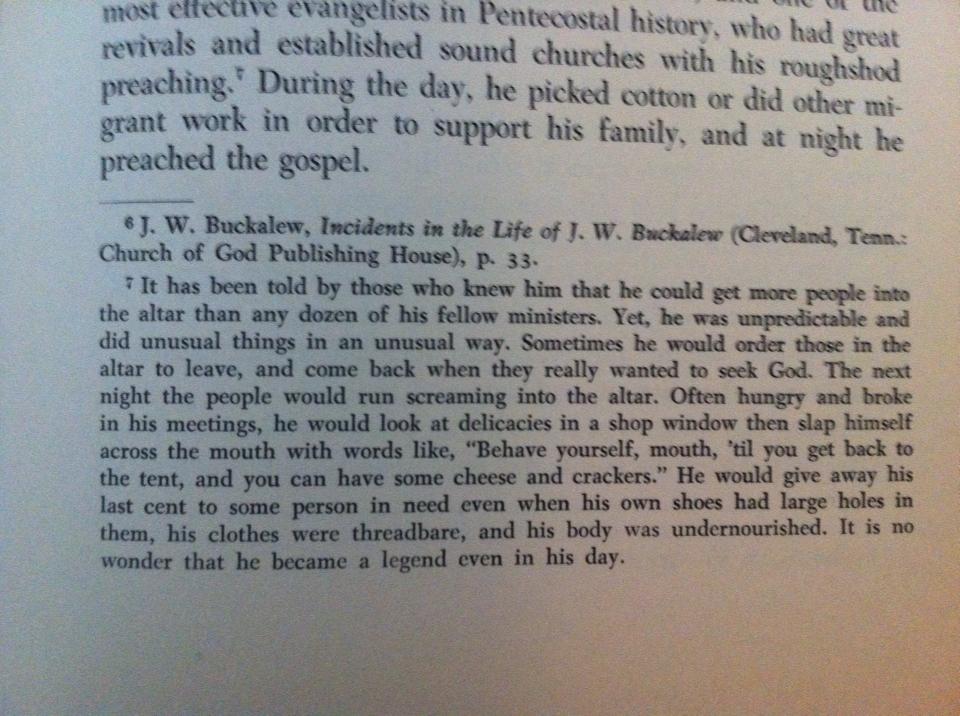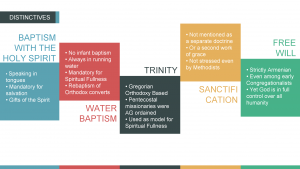Diamonds in the “Rough and Ready” (upcoming series)
- Alive, alive! (A personal testimony)
- Church of God Primitivism
- Bulgarian Church of God
- J.W. Buckalew
- WAR ON THE SAINTS: Revival Dawn and the Baptism of the Spirit
- How Jezebel Killed One of the Greatest Revivals Ever
- Pentecostal Primitivism Preserved
- Why revival came? by Dr. Charles Conn
- Azusa Street Sermons, etc.
Sanctification and Personal Holiness among Early Bulgarian Pentecostals
Historical and Doctrinal Formation of Holiness Teachings and Praxis among Bulgarian Pentecostals (Research presentation prepared for the Society of Pentecostal Studies, Seattle, 2013 – Lakeland, 2015, thesis in partial fulfillment of the degree of D. Phil., Trinity College)
With all said about the importance of Spirit baptism and the importance of the Trinity in the Pentecostal experience of the believer, it comes as a great surprise that sanctification was never mentioned as a specific doctrine among early Bulgarian Pentecostals. Voronaev’s teaching included: (1) salvation through new birth, (2) baptism with the Holy Spirit, (3) healing and (4) the second return of Christ. Sanctification was never specifically mentioned as a separate doctrine.
To this day, sanctification is not an official doctrine for the Evangelical Methodist Episcopal Church of Bulgaria. In 1928, Bulgaria’s Pentecostal Union also included holiness as number ten in their first bylaws. Sanctification was not defined as a second work of grace, but as a “continuous life of holiness”. With the enormous theological Methodist influence, it is astounding that the doctrine of sanctification was never taught as a separate work of grace. Even when after Pentecostalism spread in Bulgaria, it was not included in the tri-fold formula for “spiritual fullness” of the believer.
Nevertheless, the search for a deeper spirituality was always there. When liberal theology entered Bulgaria in the beginning of the 20th century, the more conservative believers were forced to separate from the larger city congregations into home services and cottage meetings.
These small communities were enclosed, but easily identified by their extreme personal asceticism. There was no use of instruments in worship, no denominational structure and a distinct social disengagement from the world. Men shaved their heads completely and grew long mustaches. They wore no dress ties, because they pointed downward toward hell. Women wore head coverings as a sign for the angels both within and outside church services. Even the mother of Bulgaria’s Pentecostalism, Olga Zaplishny, who was college educated and spent years in the United States wore a head cover and enforced all ladies to follow her example.
Bulgarian Churches in America: Personal Xlibris
Excerpt from the chapter “How to Start a Bulgarian Church in America from A-to-Z”
X. Xlibris
Every community leaves a lasting xlibris on its accomplishments, victories and success through a time of celebration. After each major accomplishment, plan deliberately and allow time for celebration. Celebration will renew the motivation of your congregation. Thank God for what He has done, what He is doing and even for the future expectation of what He is about to do. Leave your signature, your identity, and your xlibris where God has placed you to exist. You can even chose a day in which you can celebrate the birth of the new church.
Y. Yielding
As the time of accomplishment and conclusion draws near, prepare yourself for yielding. Yield to God’s leadership for the future, to the needs of the congregation, to new ministers which the congregation has set forth, and to the needs of your family and yourself. This process will provide you with your next step.
Z. Zooming-out
If you have reached the final step in this program you have proven to others and yourself that you are a great leader and church planner. However, if you are a good church planner, you are probably not a good maintainer. It is too hard for an initiator to stop making things happen. It takes a different person to plan, water and grow. This is indeed a Biblical principle and it alludes to the law of the big picture.
If you are not ready to change significantly from planter to a maintainer, you will only hurt what you have planted. Therefore, prepare for change. You will either adapt to being a maintainer or you will have to leave. It is time to zoom-out and see the big picture. When it is the leader’s time to walk away, he/she has to be willing to leave. If this is the case, go back to point A. A new project from God is waiting for you.










